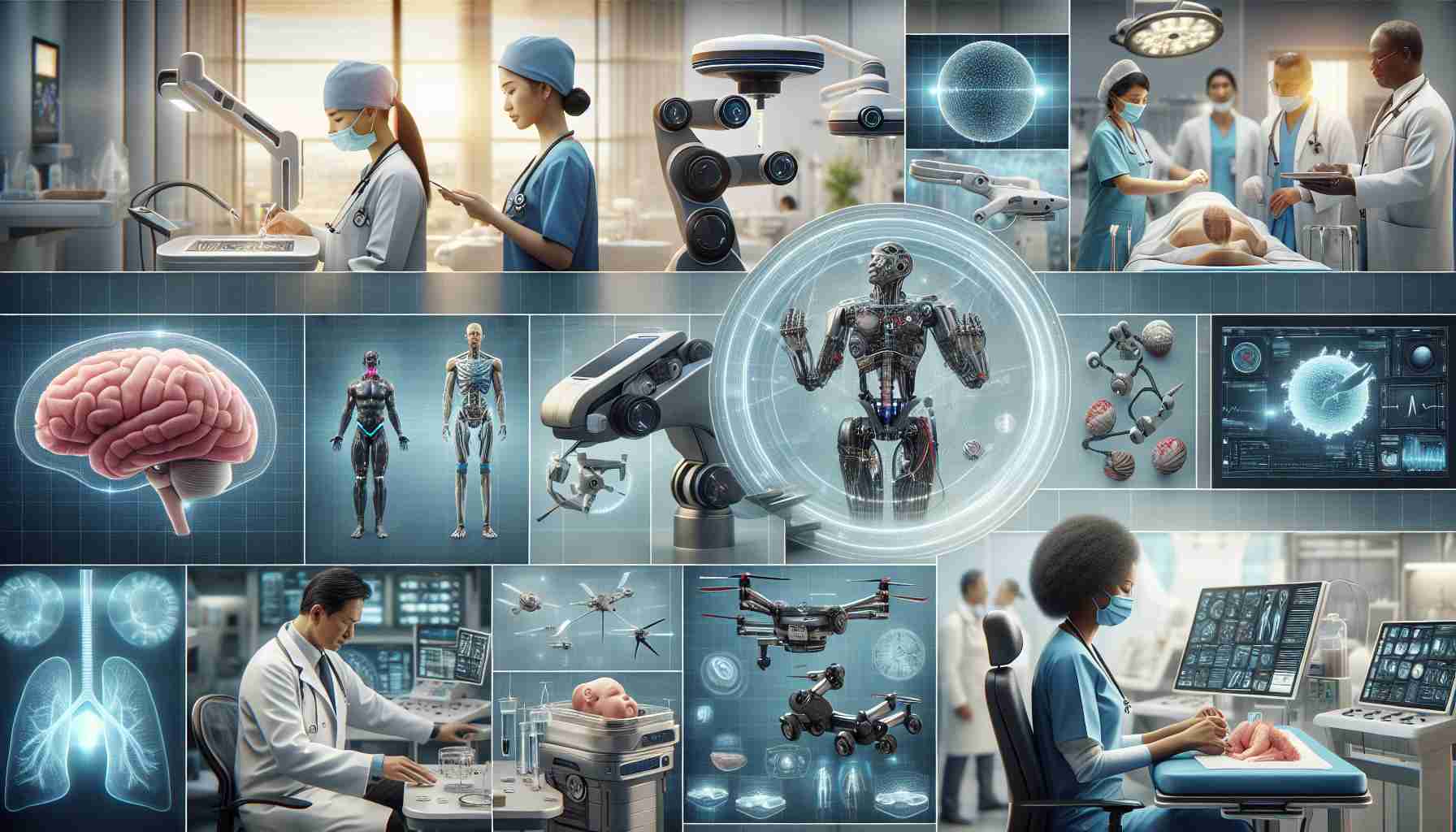The landscape of Indian healthcare is transforming swiftly with the integration of Artificial Intelligence (AI) and robotics. These innovations promise to enhance accessibility and affordability, paving the way for a healthier population.
AI technologies are reshaping the diagnostic process, making it faster and significantly more accurate. In a nation characterized by its diverse needs, the speed of AI analysis is unmatched; it processes complex medical images like X-rays and MRIs efficiently, aiding in early detection of diseases such as cancer and diabetes. This shift is already seen in several hospitals, where AI tools are actively improving breast cancer diagnostics.
Additionally, the rise of robotic-assisted surgeries represents a breakthrough in surgical precision. Surgeons are utilizing robots that mimic human movement, leading to minimally invasive procedures with reduced recovery times, lower blood loss, and minimized incisions. As robotic systems become more cost-effective, a growing number of medical facilities are embracing this technology for a variety of operations, from orthopedic to transplant procedures.
Moreover, AI-driven telemedicine is addressing healthcare disparities between urban and rural regions by facilitating remote consultations and seamless data analyses in clinics. These advancements are not only enhancing patient care but are expected to revolutionize the accessibility of healthcare services in India.
The Indian government’s initiatives underscore the urgent need for tech integration in healthcare, fully equipping professionals to ensure these advanced technologies realize their potential. The future of healthcare is indeed bright and innovative!
The Future of Indian Healthcare: How AI and Robotics are Revolutionizing Patient Care
India’s healthcare sector is undergoing a seismic shift as Artificial Intelligence (AI) and robotics become integral components of medical practices. This transition not only aims to improve patient outcomes but also focuses on making healthcare more accessible and affordable for the vast population.
AI in Diagnostics: Enhancing Accuracy and Speed
AI technologies are transforming diagnostic processes across the country. They enable healthcare providers to analyze complex medical images with remarkable speed and accuracy. For instance, AI algorithms can interpret X-rays and MRIs swiftly, facilitating earlier detection of critical illnesses such as cancer and diabetes. This technology is currently in use in numerous hospitals, significantly improving the precision of breast cancer diagnostics.
Robotic Surgery: Precision and Efficiency Redefined
The advent of robotic-assisted surgery marks a pivotal advancement in surgical procedures. Surgeons are increasingly adopting robotic systems that replicate human dexterity, allowing for minimally invasive operations. These procedures result in shorter recovery times, decreased blood loss, and smaller incisions. With technological advancements driving down costs, more medical facilities are integrating robotic systems, enabling a variety of surgeries ranging from orthopedic to organ transplants.
Telemedicine: Bridging Healthcare Gaps
AI-driven telemedicine solutions have played a crucial role in mitigating healthcare disparities, especially between urban and rural populations. By facilitating remote consultations and providing actionable data analytics, telemedicine improves access to healthcare services for underserved communities. This revolution in service delivery is set to significantly alter the healthcare landscape in India, making quality care more universally available.
Government Initiatives: Supporting Technological Integration
The Indian government is recognizing the imperative of integrating technology into healthcare. Initiatives aimed at training healthcare professionals and implementing modern technologies underscore this commitment. By ensuring that healthcare workers are equipped with the skills to utilize advanced tools, the government aims to fully harness their potential, leading to improved healthcare delivery nationwide.
Pros and Cons of AI and Robotics in Healthcare
Pros:
– Increased Efficiency: AI reduces the time required for diagnoses and treatment planning.
– Enhanced Accuracy: AI algorithms can minimize human error in medical assessments.
– Reduced Recovery Time: Robotic surgeries often lead to faster patient recovery and lower complication rates.
– Broader Accessibility: Telemedicine expands healthcare services to remote regions.
Cons:
– High Initial Costs: Implementing AI and robotic systems may require significant investment.
– Training Requirements: Healthcare professionals need substantial training to adapt to these technologies.
– Data Security Concerns: The use of AI and telemedicine involves handling sensitive patient data, raising privacy concerns.
Insights into Future Trends
As AI and robotics continue to evolve, their applications in healthcare will become even more sophisticated. Future trends may include:
– Predictive Analytics: Leveraging AI to anticipate health issues before they become critical.
– Personalized Medicine: Tailoring treatments based on individual genetic profiles.
– Integration of IoT Devices: Enhanced monitoring of patient health through connected devices.
Sustainability and Ethical Considerations
Incorporating these technologies also poses sustainability challenges, including the environmental impact of robotic devices and the need for ethical guidelines in AI usage. Addressing these factors is crucial to ensuring that technology serves humanity responsibly.
Conclusion
The integration of AI and robotics in India’s healthcare system heralds a new era of improved accuracy, efficiency, and accessibility. As the landscape evolves, the emphasis on training, ethical standards, and sustainability will be pivotal in shaping a future where healthcare is equitable, cutting-edge, and patient-centered.
For further insights into India’s healthcare advancements, you can visit healthcare in India.
